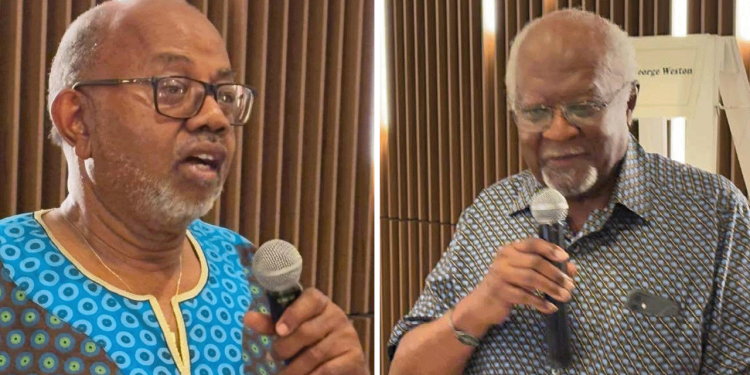August 17, this year marks the 138th anniversary of the birth of Marcus Mosiah Garvey, and his son, Dr. Julius Garvey has underscored the importance of keeping alive Garvey’s legacy of solidarity of all Africans on the continent and in the diaspora and the celebration of their triumphs and achievements.
Dr. Garvey, was in Antigua and Barbuda earlier this month to participate in the activities marking Watchnight from July 31 to August 1st to commemorate the end of slavery in the British West Indies.
During his visit, he paid courtesy calls on the Governor General’s Deputy, Sir Clare Roberts, Prime Minister Gaston Browne, Foreign Affairs Minister, E.P Chet Greene, Permanent Secretary in the Ministry of Foreign Affairs, Amb. Dr. Clarence Pilgrim as well as visited the campus of the University of the West Indies, FIC.
At a reception held in his honour hosted by the Antigua and Barbuda Reparation Support Commission, Dr. Garvey, who was just 7 years old when his father died in 1940, referenced the decades-long fight to exonerate Marcus Garvey, one of the most influential leaders in the global movement for African unity and empowerment, reached a historic milestone in January 2025.
Speaking at the commemorative gathering, Dr. Garvey recalled that the journey began with formal appeals to the United States Congress in Washington, D.C.
Key figures such as former Congressman the late Charlie Rangel, representatives from Detroit, and numerous other members of Congress joined the cause over the years. The movement persisted through decades of advocacy, petitions, and awareness campaigns. Finally, President Joe Biden granted a posthumous pardon to Garvey—an act that many saw as a significant step toward correcting a long-standing injustice.
Dr. Garvey highlighted 1987 as a pivotal moment in the push for what he called “reparative justice” for Marcus Garvey—justice that not only sought to restore his name but also to revive and spread his message. Since then, advocates have worked tirelessly to ensure Garvey’s story is told from an authentic African perspective.
He reported that during his discussion at the University of the West Indies’ Five Islands Campus, the importance of history emerged as a central theme. He expressed concern that many young people today show little interest in history, with classrooms often half-empty. He stressed, “history is the telling of our story, as without knowledge of our past, we cannot truly understand who we are, where we are going, or how to navigate the path ahead.”
The event, rich with memorabilia and symbolic significance, served as a reminder that Marcus Garvey was foundational to the development of African people and the renaissance of African civilization. The Exoneration Committee, alongside other advocacy organizations, continues to advance this mission.
Dr. Garvey noted that as “the original people,” Africans carry within them the essence of human DNA—what he called “African humanism”—a force that has endured throughout history. He emphasized that no external force, not even artificial intelligence, can diminish this innate human intelligence, which is deeply connected to the eternal nature of the universe.
Drawing on themes of resilience, Dr. Garvey affirmed that African people will triumph over adversity. “We are in the homestretch,” he declared, expressing optimism that the fight for justice and recognition is nearing a decisive and victorious conclusion.
In closing, he extended gratitude to the audience for their presence, the shared occasion, and the collective commitment to keeping Marcus Garvey’s legacy alive.
During the reception, members of the Tim Hector Memorial Committee presented Dr. Garvey with a special copy of an edition of the Outlet newspaper, that focused on Marcus Garvey and his monumental contributions to black consciousness throughout the Americas.



